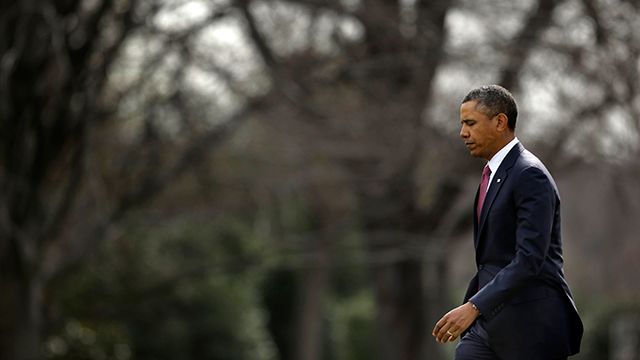Update: In a reversal, Organizing for Action chairman Jim Messina announced several changes in policy on Thursday, March 7, 2013.

President Obama has a new nonprofit to fundraise and advocate for his policy goals, called Organizing for Action. The group shares more than initials with its predecessor, Obama for America — it also has access to 2.2 million volunteers, 33 million Facebook friends, 22 million Twitter followers and 17 million e-mail subscribers, most of whom the nonprofit’s leaders gathered during the group’s previous incarnation.
The new 501(c)(4) represents an “if you can’t beat ’em, join ’em” mentality in the administration — instead of trying to stop a dangerous game being played by politicians and big donors to the exclusion of everyone else, the president has chosen instead to try and play it better. And there’s a lot about OFA that breaks new ground for the political nonprofits that have emerged since Citizens United.
Super PACs and 501(c)(4)s can raise unlimited amounts of money, but can’t coordinate with a campaign. But Obama isn’t running a campaign; he’s in his second term, so he won’t be running again. So OFA can coordinate with Obama all they want. As Slate’s David Wiegel notes, this means that a Democratic president as a lame duck has already found a way to solicit unlimited donations, something the Republican National Committee is suing to be able to do.
Because OFA can coordinate with the politician whose goals it seeks to advance, the nonprofit can promise donors who give $500,000 quarterly meetings with the president through a “national advisory board.” That means more access for rich donors, and less access for everyone else. As The New York Times editorial board notes, this also means that:
Any corporation with a matter pending before the administration can give lavishly to Organizing for Action as a way of currying favor, knowing that the West Wing will take note. (The group does not have to disclose its donors but says it will, and also plans to reject money from registered lobbyists and PACs.) It is also a way for donors to bypass the limits on giving to the Democratic Party: the new group does similar work, but without the restrictions on donations.
In the run-up to the 2010 midterm elections, when dark money groups were first emerging on the political scene, Obama spoke out against the corrosive influence of money on politics. “Don’t let them hijack your agenda,” Obama told thousands of supporters who came to hear him talk at a school park in a working-class neighborhood in Philadelphia. “The American people deserve to know who’s trying to sway their elections, and you can’t stand by and let the special interests drown out the voices of the American people.”
But now, the president’s own 501(c)(4) has gone further than groups like Karl Rove’s American Crossroads, which put out a snarky (and painfully ironic) attack ad yesterday, branding the new group “Organizing for Access.”
Good government groups have, of course, taken notice as well. Bob Edgar, the president of Common Cause, wrote,“If President Obama is serious about his often-expressed desire to rein in big money in politics, he should shut down Organizing for Action and disavow any plan to schedule regular meetings with its major donors. […] Access to the president should never be for sale.”

